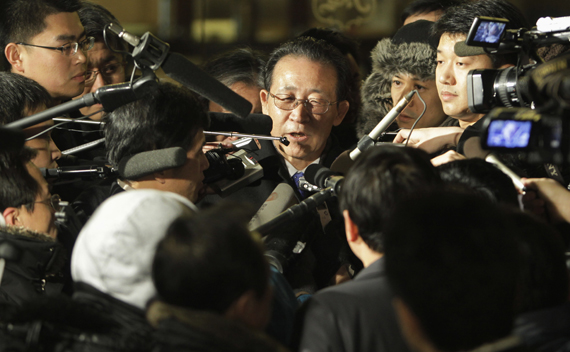Should the U.S. Government be Talking to Kim Kye-gwan?
More on:

Kim Kye-gwan, DPRK’s Vice Minister for Foreign Affairs arrived in New York yesterday for his first visit to the United States in four years, and for his first meeting with a senior representative of the U.S. government since the visit of Special Representative for North Korean Affairs Stephen Bosworth to Pyongyang in December of 2009. Despite the relative lack of contact in recent years, Vice Minister Kim and his delegation are all too familiar with his American counterparts; he has been the main North Korean interlocutor with the United States for at least fifteen years.
Prior to my first visit to Pyongyang in May of 1991, a colleague joked with me that “you never meet the same North Korean twice.” That observation was exactly wrong. U.S. government officials always meet with the same North Koreans over and over again, trapped in the diplomatic equivalent of Groundhog Day. During our 1991 visit, we met with many North Korean foreign ministry officials who have gone on to play principal roles in negotiations with the United States for over two decades. We did not meet with Kim Kye-gwan during my first trip to Pyongyang, but he is very well known to U.S. officials, having served as a primary interlocutor over the course of the past two decades with Thomas Hubbard, Charles Kartman, William Perry, Wendy Sherman, Jim Kelly, Chris Hill, and now Steve Bosworth. The results have been lacking, and not as a result of a lack of effort, skill (or, in the view of some, a result of a lack of incentives offered) by U.S. counterparts.
I support regular, high-level diplomatic contact with the DPRK based on close coordination with our South Korean allies primarily for the following reasons:
- The North Koreans need to hear firm statements of the U.S. position on North Korean issues directly from American diplomats and not just through the media;
- A lack of direct contact between the U.S. and DPRK might give China overconfidence that it can manipulate the situation on the ground in North Korea to the exclusion of the United States; and
- The exchange of views need not necessarily lead to negotiations if the timing is not right.
The lack of satisfactory results at the negotiating table underscores that negotiations by themselves are inadequate to achieve the U.S. objective of denuclearization, regardless of what the U.S. offers in return. This raises the question of whether Kim Kye-gwan is the right counterpart for U.S. negotiators. His longevity in the job shows he has earned the backing of his leadership, but from a U.S. perspective, the result of negotiations with Kim Kye-gwan has been an abject failure. As long as Pyongyang sends out Kim Kye-gwan as the regime’s face to the United States, there is little reason to harbor expectations that current contacts will yield results different from the past. The United States should insist on a new man—and new instructions—from Pyongyang if the dialogue is to continue.
More on:
 Online Store
Online Store